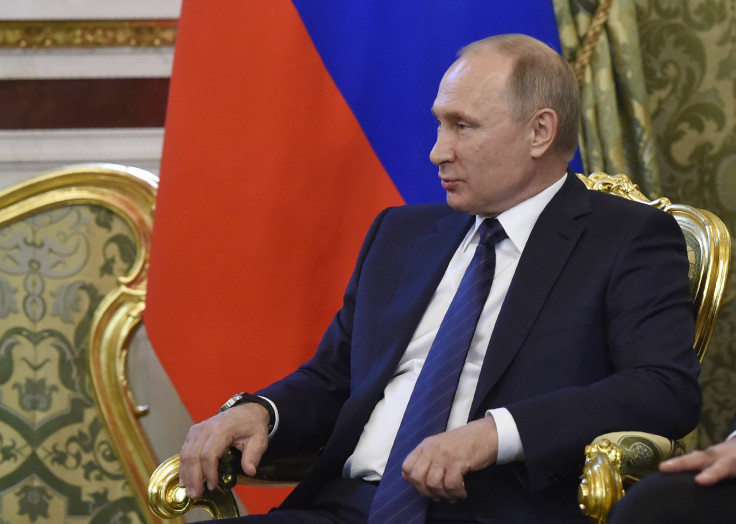Vladimir Putin Calls For Stricter Cryptocurrency Regulation

Russian president Vladimir Putin reportedly said cryptocurrency could pose “serious risks” during a meeting in Sochi with the nation’s top finance officials on Tuesday. "Cryptocurrencies are issued by an unlimited number of anonymous bodies," Putin said, according to Radio Free Europe/Radio Liberty. "Thus buyers of cryptocurrencies could be involved in unlawful activities."
Putin warned the group, which included Bank of Russia Governor Elvira Nabiullina and Finance Minister Anton Siluanov, that cryptocurrency could be used for money laundering, tax evasion and funding terrorism. However, many experts are still skeptical about claims cryptocurrency could have more nefarious potential than mainstream fintech tools for fiat currencies.
This represents a dramatic shift from the Kremlin. Over the past few months, Russian authorities were warming up to cryptocurrency, hosting government-sponsored blockchain conferences while considering new regulations for bitcoin and other currencies of its ilk. In fact, another major bitcoin conference in Moscow is scheduled to start on Nov. 15.

And yet Reuters reported Central Bank First Deputy Governor Sergei Shvetsov said on Tuesday his team supports efforts to block websites selling cryptocurrencies like bitcoin. Shvetsov reportedly said investing in cryptocurrency “carries an unreasonably increased risk” compared to other assets.
Has Russia abandoned its goal of becoming a world leader in blockchain technology ? Not quite.
None of these warnings revoked previous announcements about Russia developing its own national cryptocurrency. Several Russian officials, including Putin himself, met with Ethereum creator Vitalik Buterin earlier this year and publically endorsed the technology’s potential. According to Bloomberg, Putin tempered his recent warnings with calls for a new “regulatory environment” to control access without creating “too many barriers.”
Russia is actually following in China’s footsteps, an ally with both a powerful bitcoin community and plans for its own national cryptocurrency. China recently banned initial coin offerings, a global fundraising trend promoting the creation of new cryptocurrencies, and shut down cryptocurrency exchanges operating in China. However, Chinese authorities have not banned bitcoin trading itself or blocked access to foreign websites, including those run out of Singapore and Hong Kong. The blockchain industry is still alive and well in China. The regulatory crack down appears to be a push for oversight and control rather than eradication.
Chinese and Russian officials don’t consider cryptocurrency a fraud or a “novelty,” as JPMorgan Chief Executive Jamie Dimon called bitcoin. To the contrary, the aggressive moves toward regulation suggests they see cryptocurrency as a serious threat to the status quo.
"We should develop such a regulatory system on the basis of international experience that will make possible to make relations in this sphere systemic,” Putin said this week, according to CoinDesk. “Definitely protect interests of citizens, business and the government, and provide legal guarantees for work with innovative financial instruments.” Regardless of the nuanced approach Russian authorities discussed on Tuesday, these statements coincided with a sudden $600 dipin bitcoin prices.
Many cryptocurrency users see blockchain technology as a tool for creating a new economic order with more individual freedom, a system where governments no longer monopolize the right to create and control money. Chinese and Russian authorities are proving themselves to be adamant supporters of blockchain-based fintech, even as they publicly oppose some of the ideologies driving the foundational technology.
© Copyright IBTimes 2024. All rights reserved.





















